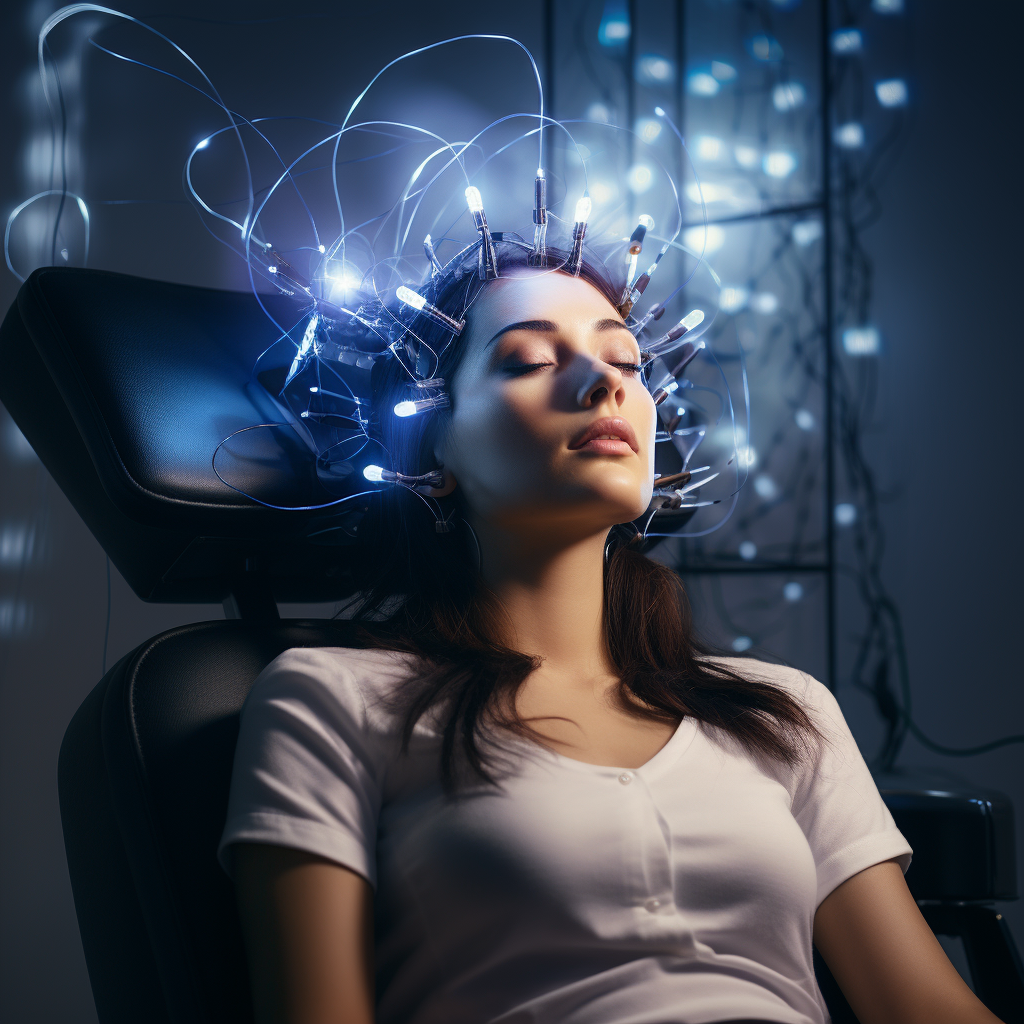In recent years, the field of mental health treatment has witnessed a groundbreaking innovation in the form of Transcranial Magnetic Stimulation (TMS). This non-invasive procedure has gained significant attention for its potential to revolutionize the way we approach and treat various mental health disorders. In this comprehensive blog post, we’ll take a deep dive into the world of TMS, exploring its mechanisms, applications, benefits, and the transformative impact it could have on mental health care.
Understanding Transcranial Magnetic Stimulation (TMS)
- What is TMS?
- TMS is a non-invasive neurostimulation technique that uses magnetic fields to stimulate nerve cells in the brain.
- It involves the use of an electromagnetic coil placed against the scalp, generating targeted magnetic pulses to specific regions of the brain.
- How Does TMS Work?
- The magnetic pulses induce electrical currents in the brain, modulating neuronal activity.
- This targeted modulation is believed to have therapeutic effects, particularly in conditions associated with irregular brain activity.
- Applications of TMS in Mental Health
- Depression Treatment: TMS has been FDA-approved for the treatment of Major Depressive Disorder (MDD) in individuals who have not responded to traditional antidepressant medications.
- Anxiety Disorders: Ongoing research explores the potential of TMS in alleviating symptoms of various anxiety disorders.
- Neuropathic Pain: TMS shows promise in managing chronic pain conditions by influencing pain perception pathways.
The Benefits of TMS Therapy
- Non-Invasive Nature:
- TMS is a non-surgical and non-pharmacological treatment, minimizing the risk of systemic side effects associated with medications.
- Precise Targeting:
- The ability to precisely target specific brain regions allows for personalized treatment plans tailored to individual needs.
- Minimal Side Effects:
- Compared to traditional treatments, TMS generally has fewer side effects, and those that do occur are typically mild and transient.
- Potential for Neuroplasticity:
- TMS may induce changes in synaptic plasticity, promoting adaptive changes in neural circuits.
The Transformative Impact on Mental Health Care
- Enhancing Treatment-Resistant Depression:
- TMS offers hope for individuals with treatment-resistant depression, providing an alternative when other interventions prove ineffective.
- Reducing Stigma:
- By offering a non-stigmatizing and non-pharmacological approach to mental health treatment, TMS has the potential to reduce the stigma associated with mental health disorders.
- Integration with Traditional Therapies:
- TMS can be integrated into existing mental health care frameworks, complementing traditional therapies and medications.
Challenges and Future Directions
- Cost and Accessibility:
- While TMS holds promise, challenges related to cost and accessibility need to be addressed to make this therapy widely available.
- Continued Research:
- Ongoing research aims to expand the applications of TMS and refine treatment protocols for various mental health conditions.
As we navigate the evolving landscape of mental health care, Transcranial Magnetic Stimulation stands out as a beacon of innovation and hope. Its ability to target specific brain regions with precision, coupled with its non-invasive nature and minimal side effects, positions TMS as a transformative force in mental health treatment. While challenges remain, the ongoing research and growing acceptance of TMS suggest a promising future where individuals facing mental health challenges have access to advanced, effective, and personalized therapeutic options.
Remember, you are not alone, and there is hope for a brighter tomorrow. Reach out to us at Ray of Hope 380-400-4673



